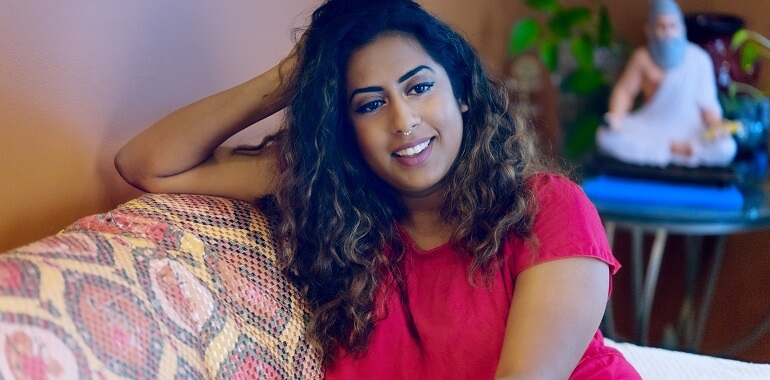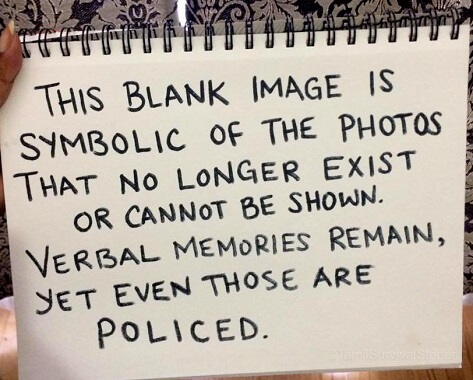
MATHUSHA
Toronto, Canada
"I am a Tamil first and a Canadian second.
As a Tamil Canadian feminist I am disappointed with the disconnect diaspora feminists have to women in Eelam. Working for equal pay, ending the double standards with the sexualisation of women and fighting shadeism is important, however they are as urgent as the issues that Tamil women in Eelam face - the daily threat of being raped by the Sri Lankan military, girls being harassed or kidnapped when they walk to school and the community’s stigmatization of war widows and rape victims. This idea that if you are talking about Tamil women issues back home you are a terrorist, is insulting.
When you call yourself a Sri Lankan feminist you are connecting yourself to a nation and an identity that doesn’t even take ownership of you as a Tamil and actually goes out of its way to discriminate, murder and rape Tamil women.

I grew up with strong female role models. Amma and ammamma (grandmother) are feminists. I have aunts and cousins who are feminists. Feminism was a natural choice for them because of the cards they were dealt - persecution from the Sinhala state, a civil war, displacement, the loss of family and life as political refugees in foreign countries. They had to do what was necessary to survive and this didn’t fit into the Tamil community’s conservative stereotypes of how girls and women should be. So they also had to resist against their own people’s norms. Along their journey they helped other women become independent, resilient and as skillful as men.
They weren’t sitting around talking about being feminists, it just happened.
When ammamma (grandma) tells me I have to learn how to cook, she is not an anti-feminist. She is talking about survival. She wants me to be independent and not have to rely on a man. She taught me that women don’t have to be timid, quiet or fragile and I am grateful for it. Amma is the same. She defends me against old-fashioned relatives who tell her I should be married, by saying that I will do so when I want to and that she has confidence in me. She has always encouraged me to travel, follow my dreams, study, have a successful career and speak my mind.
Amma came to Canada after fleeing the Indian Army occupation with only the clothes she was wearing. She had to fend for herself in a foreign environment, work three jobs, raise two children and cook for us. People may say that being a housewife is anti-feminist. I disagree. Raising a family requires strength. Being the head of a household is a powerful position to be in.
As Eelam Tamils our recent history is full of powerful women from those who joined the resistance, to maveerars (those who died fighting), to those that fed the fighters and sheltered them in their homes, to the mothers that lost children to the war."
Sarees in the Wind Tumblr page: sareesinthewind.tumblr.com Instagram and Facebook: @TamilSurvivalStories
Photo credit: @BramiJegan

























